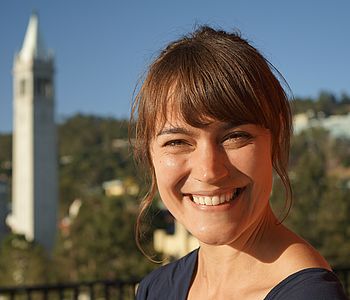Dr. Julia Wambach | Associated Researcher
Former Member
Home Institution
:
Max-Planck-Institut für Bildungsforschung
|
Position
:
Researcher at the Center for the History of Emotions
|
Disciplines
:
History
|
Biography
- Ph.D. in Late Modern European History, University of California, Berkeley, 2017. "Learning from Defeat. The French Occupation of Germany after two World Wars"
- M.A. in History and French Studies, Ruhr-Universität Bochum, 2009.
- B.A./Licence in History and French Studies, Ruhr-Universität Bochum/Université François Rabelais Tours, 2006.
Researchtopic
The End of Solidarity? Deindustrialization in Germany and France (1960-2000)
Title of thesis
Learning from Defeat. The French Occupation of Germany after two World WarsSummary of thesis
In 1945, at the end of more than thirty years of violent conflict and occupation in Western Europe, France and Germany were on the verge of a new occupation. This time, France returned to south-west Germany, but this would prove to be the last occupation between the two countries. In 1955, at the occupation’s end, the foundations were laid for a united Europe anchored in the economic collaboration of the member states of the European Coal and Steel Community, with France and West Germany at its heart.
Why did the long history of violent conflict between the two countries end with this last occupation? Historians searching for reasons to explain the end of this cycle of violence have pointed to the French policies in occupied Germany, to common institutions, and to the efforts of French intellectuals acting as mediators between France and Germany within the framework of the Cold War. Most of the studies on Europeanization or Western integration, with France and Germany at the center, begin in 1945 and tell a teleological story of reconciliation. The occupation is seen as a first step towards the institutionalized French and German state friendship, culminating in the Elysée Treaty.
My dissertation offers a new explanation for the end of the cycle of violence between France and Germany by looking at the learning processes in 1945, which influenced the way the occupation played out on the ground. These learning processes emerged from experiences in World War II, the Rhineland occupation, and European colonialism. A number of administrators in the French capital of occupied Germany, Baden-Baden, had worked in the Vichy administration during World War II. Others had been members of the French resistance and feared a similar movement of Nazi resistance would appear in French occupied Germany. Furthermore, the experiences from the Rhineland occupation led to newly emerging separatist and francophile movements in occupied Rhineland, which the French administration no longer supported reluctant to repeat their experiences in the interwar period. They instead tolerated an emerging German nationalism in the Rhineland. Finally, my dissertation addresses the specter of colonialism in French occupied Germany and explains the repercussions of European colonialism for this occupation in the aftermath of World War II.
The dissertation argues that the dual defeat of France and Germany in 1945 was necessary to end the long history of conflict. In other words, the rapprochement of the post-1945 era can only be explained by the entangled histories of French and German occupations since 1914. Only at the moment when France and Germany were vanquished did they begin to reflect on the causes of this catastrophic defeat. My work however shows that learning from the past was by no means linear but could also be misleading. It also shows that French and German cooperation after the war was built on both countries’ complicity in National Socialism.
Institution of thesis
Supervisor
The end of solidarity? Deindustrialization in Germany and France (1960-2000)
Publications
- Feeling Political through a Football Club: FC Schalke 04, 1904–2020, in: Frevert/Pahl/Arndt/Amico/Brauer/Buscemi/Lichau/Malone/Nielsen/Wambach, Learning How to Feel Political. Emotions and Institutions since 1789 (London: Palgrave 2022), https://doi.org/10.1007/978-3-030-89858-8_9 (open access).
- Review of Raphael, Lutz, Jenseits von Kohle und Stahl. Eine Gesellschaftsgeschichte Westeuropas nach dem Boom. Histoire@Politique, Januar 2021, http://www.histoire-politique.fr/index.php?numero=11&rub=comptes-rendus&item=762
- Begeisterung oder Geisterspiele? Emotionen im Fußball in Zeiten von Corona, in: Feeling News Blog, 28.04.2020, https://www.mpib-berlin.mpg.de/1024549/blog-text-wambach
- “Vichy in Baden-Baden – The personnel of the French occupation in Germany after 1945,” in the process of publication at Contemporary European History.
- Review of Long, Bronson, No Easy Occupation: French Control of the German Saar, 1944-1957. H-German, H-Net Reviews. October, 2016. http://www.h-net.org/reviews/showrev.php?id=45539
- Appreciable Services - Le passé rattrapé par le web/ The past caught up by the internet. Teil des Projektes "Histoires Courtes" von Jean-François Dars and Anne Papillault. Videokurzgeschichten zur Arbeit von Wissenschaftlern. http://histoires-courtes.fr/#page=Wambach